Béton décoratif et architectural
The Role of Fibers in Decorative and Architectural Concrete
Introduction
Decorative and architectural concrete combines form and function, playing a key role in enhancing the aesthetic appeal and structural integrity of modern construction. Fibers, such as polypropylene, polyester, steel, and cellulose, are vital in creating concrete solutions that meet both visual and performance demands. Fiberego specializes in delivering high-performance fibers that enable architects and engineers to achieve stunning designs without compromising durability.
Types of Fibers for Decorative and Architectural Concrete
Fibres de polypropylène
Polypropylene fibers are ideal for enhancing durability and crack resistance while maintaining a lightweight profile. Applications include:
- Precast Panels: Preventing shrinkage cracks and ensuring long-lasting designs.
- Textured Surfaces: Reinforcing delicate textures while maintaining aesthetic integrity.
- Architectural Walls: Offering flexibility and resistance to environmental stresses.
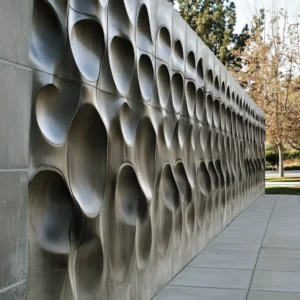
Fibres de polyester
Polyester fibers provide exceptional flexibility, UV resistance, and durability. Key uses are:
- Decorative Pavements: Enhancing color retention and abrasion resistance.
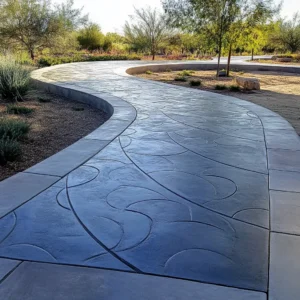
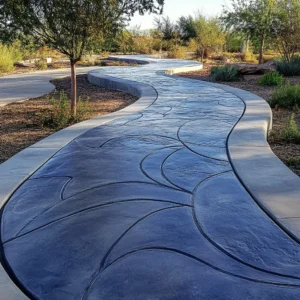
- Molded Features: Reinforcing intricate mold designs, such as statues and balustrades.
- Exterior Finishes: Withstanding weathering while maintaining a polished appearance.
Fibres d'acier
Steel fibers add strength and toughness, making them essential for load-bearing architectural features. Applications include:
- Precast Panels: Strengthening large-scale decorative panels for structural integrity.
- Sculptural Designs: Ensuring stability in complex, free-standing structures.
- Load-Bearing Features: Reinforcing elements like columns and arches.
Fibres de cellulose
Eco-friendly cellulose fibers improve concrete workability and surface finish. Applications include:
- Colored Concrete: Supporting uniform dispersion of pigments for vibrant designs.
- Smooth Finishes: Enhancing trowelability for seamless and polished surfaces.
- Architectural Details: Providing fine reinforcement for intricate patterns and motifs.
Applications of Fibers in Decorative and Architectural Concrete
Precast Panels
Fibers strengthen decorative precast panels, ensuring crack resistance and structural integrity during transportation and installation. Steel fibers enhance durability for large panels, while polypropylene fibers prevent shrinkage cracks.
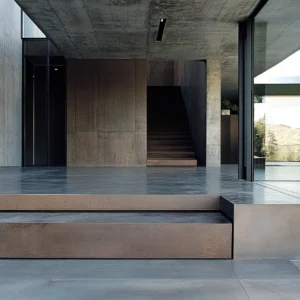
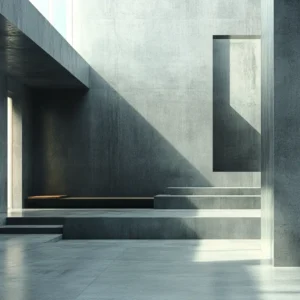
Visible Decorative Areas
In exposed concrete applications where aesthetics matter, fibers provide the structural support needed to maintain flawless designs. Polyester fibers ensure durability in pavements, while cellulose fibers contribute to smooth finishes and uniform textures.
Architectural Features
Fibers enhance the strength and visual appeal of architectural elements like columns, arches, and balustrades. Steel fibers provide load-bearing support, and polypropylene fibers offer resistance to environmental wear, ensuring long-term performance.
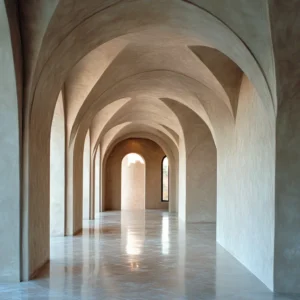
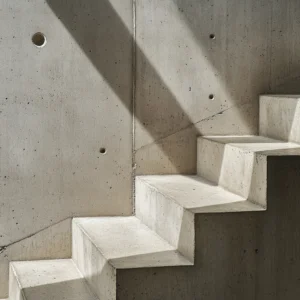
Benefits of Using Fibers in Decorative and Architectural Concrete
Enhanced Structural Integrity
Fibers reinforce concrete against cracks, shrinkage, and environmental stresses, extending the lifespan of decorative elements.
Improved Aesthetics
Fibers like cellulose improve the finish quality, ensuring smooth surfaces and consistent textures in architectural designs.
Sustainability
Cellulose fibers offer an eco-friendly reinforcement option, reducing the environmental impact of concrete production.
Cost Efficiency
Reinforced fibers reduce maintenance and repair costs, offering long-term value for decorative and architectural projects.
Fiberego: Your Partner in Decorative Concrete Solutions
Fiberego provides cutting-edge fiber solutions for decorative and architectural concrete. Our advantages include:
- Tailored Products: Fibers designed for specific aesthetic and structural needs.
- Expert Support: Guidance on fiber integration to achieve optimal performance.
- Sustainability Focus: Eco-friendly practices that align with green building initiatives.
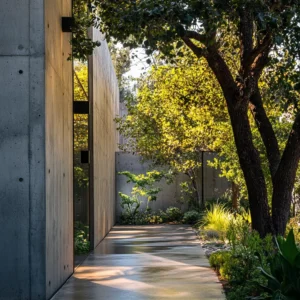
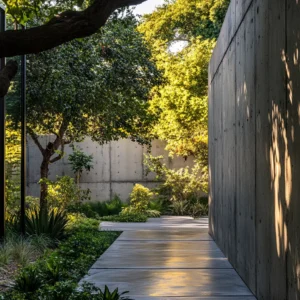
Future Innovations in Decorative and Architectural Concrete
Smart Fiber Reinforcement
Development of fibers with embedded sensors for monitoring structural health and environmental conditions.
Advanced Pigment Integration
Fibers designed to enhance color dispersion and durability in decorative concrete.
Sustainable Materials
Increased use of biodegradable and recycled fibers for environmentally conscious architectural projects.
Conclusion
Fibers are revolutionizing decorative and architectural concrete by adding strength, durability, and aesthetic value. Fiberego’s expertise in polypropylene, polyester, steel, and cellulose fibers ensures innovative solutions for creating visually stunning and long-lasting concrete designs.
Transform your architectural vision with Fiberego—where aesthetics meet durability.


